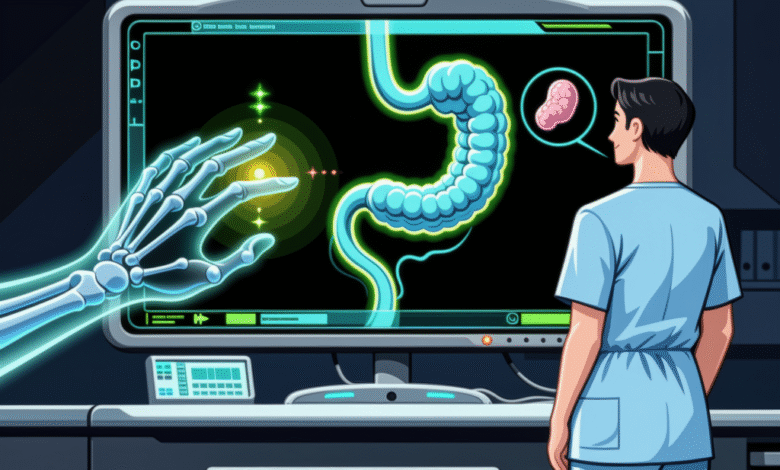AI May Hinder Doctors’ Diagnostic Abilities, Research Shows

▼ Summary
– AI use in colonoscopy may reduce endoscopists’ cancer-detection skills, a phenomenon called “deskilling.”
– A study found adenoma detection rates dropped from 28.4% to 22.4% after AI implementation in non-AI-assisted procedures.
– Prolonged AI exposure may cause doctors to become less motivated and focused when working without AI assistance.
– The research suggests human clinicians may over-rely on AI recommendations, leading to reduced cognitive performance.
– Colorectal cancer remains the second-most common cancer globally, making colonoscopy quality particularly important.
Colorectal cancer screening remains a vital health priority, especially for individuals over 55, as it stands as the second most common cancer globally. While colonoscopies are a primary diagnostic tool, new research suggests that the integration of artificial intelligence into medical practice may inadvertently reduce the diagnostic proficiency of physicians.
A recent study published in The Lancet Gastroenterology & Hepatology highlights a phenomenon termed “deskilling,” where prolonged use of AI assistance during procedures like colonoscopy may lead to a decline in doctors’ ability to detect abnormalities on their own. The research, led by Krzysztof Budzyń and colleagues from the Department of Gastroenterology at the Academy of Silesia, indicates that routine exposure to AI could diminish an endoscopist’s adenoma detection rate (ADR), a key measure of diagnostic accuracy.
The team conducted a randomized trial across four endoscopy centers in Poland, analyzing over 1,400 colonoscopies performed both before and after the introduction of an AI system called CADe, developed by Olympus. This system uses artificial intelligence to identify potential lesions in real time. While AI-assisted procedures initially showed improved detection rates, the study revealed a concerning trend: when the same physicians performed standard colonoscopies without AI support afterward, their ADR dropped significantly, from 28.4% to 22.4%.
This decline was observed in the majority of the 19 experienced endoscopists involved in the study, each of whom had performed more than 2,000 procedures. The researchers hypothesize that over-reliance on AI may reduce clinicians’ motivation and focus when working without technological support. Prior studies in fields like mammography and earlier colonoscopy research have similarly indicated that automation can lead to reduced vigilance and cognitive engagement.
The authors caution that their findings are preliminary and acknowledge limitations such as sample size and potential selection bias. However, they emphasize that the tendency to depend heavily on automated systems is a broadly human trait, not limited to a specific AI tool. This raises important questions about how AI should be integrated into clinical workflows without undermining the expertise of medical professionals.
As AI continues to transform healthcare, these findings underscore the need for balanced implementation, harnessing technology’s benefits while safeguarding the diagnostic skills that form the foundation of medical practice. Further research will be essential to develop guidelines that prevent deskilling and ensure that both doctors and patients benefit from advances in artificial intelligence.
(Source: ZDNET)






